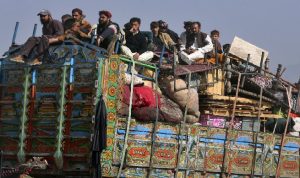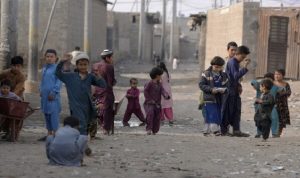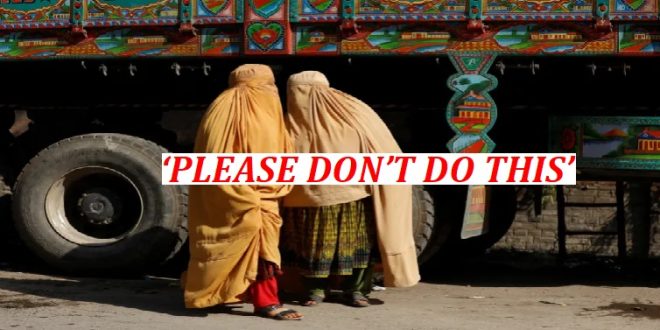16-02-2025
Bureau Report + Agencies
ISLAMABAD/ KARACHI: When Salima Ahmad* noticed a three-day gap between the expiry of her family’s visas and the date on a document proving that they had applied for renewals, her heart filled with dread. An Afghan citizen living in Pakistan since 2022, Ahmad feared that authorities would arrest her family for residing in the country illegally.
On February 7, just two days after their visas expired, her fears became reality.
 A group of police officials, including female officers, raided her rented house, identifying her family as undocumented residents. Despite her pleas and attempts to show that their passports had been sent for visa renewal, the police took her husband away.
A group of police officials, including female officers, raided her rented house, identifying her family as undocumented residents. Despite her pleas and attempts to show that their passports had been sent for visa renewal, the police took her husband away.
“I kept imploring, pleading for his release. I tried to show them my documentation and proof that we had applied for visa renewal, but they didn’t listen,” Ahmad told media. The policewomen then told Ahmad to pack up her children’s belongings, warning that she would also be taken to a camp for refugees and deportees set up on Islamabad’s outskirts.
“I begged them not to do this. My children would be traumatized. But they eventually put us in a van and took us away,” she said.
After spending two days in a tent at the camp situated in Islamabad’s outskirts, Ahmad only managed to return home two days later by arranging a 60,000-rupee ($216) bribe.
“I had to ask my relatives, who came to check on us, to arrange this loan. Only then were we allowed to go home,” she said. For now, the family has passports back, with visas stamped for one more month, at the end of which Salima fears a repeat of the humiliating and scary experience they endured in early February.
Ahmad’s story is one of many, as thousands of Afghan citizens in Pakistan, many of whom fled following the fall of Kabul to the Taliban in August 2021, now face an uncertain future under a recent government notification.
 In a two-page document issued by Prime Minister Shehbaz Sharif’s office last month, the Pakistani government outlined a three-phase plan to send back Afghan citizens living in the country.
In a two-page document issued by Prime Minister Shehbaz Sharif’s office last month, the Pakistani government outlined a three-phase plan to send back Afghan citizens living in the country.
The first phase involves the “immediate” deportation of all undocumented Afghan citizens. This includes 800,000 Afghans who did not enter the country on valid visas but who, since 2017, have been granted Afghan Citizen Cards (ACC) by the government of Pakistan itself.
The second phase focuses on Afghan citizens who hold so-called Proof of Registration or PoR cards, first issued in 2006. The final phase will target Afghan citizens who might relocate to third countries.
If the plan is carried out as envisaged, only valid visa holders will remain in the country none of the other refugees who entered Pakistan under duress without proper documentation will be allowed to stay.
The notification in effect escalates a previously stop-start approach to expelling Afghan refugees. Originally implemented in late 2023, the plan has already led to more than 800,000 Afghan nationals returning to Afghanistan over the past 18 months, according to the United Nations refugee agency (UNHCR).
Pakistan has hosted millions of Afghan refugees since the Soviet invasion of Afghanistan in 1979. Over the next 20 years, as civil war engulfed Afghanistan and the Taliban first took control in 1996, successive waves of refugees arrived in Pakistan.
 Pressmediaofindia
Pressmediaofindia




